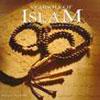Kaduna State governor 'El-Rufai' to make report of Inquiry on Zaria Massacre public

The Kaduna State governor, Mallam Nasir El-Rufai has disclosed that the final report of the Judicial Commission of Inquiry into last December’s Army attack on unarmed members of the Islamic Movement in Nigeria, in Zaria will be made available to the public even while the process for issuing a White Paper is ongoing.
The governor stated this on Friday while receiving the Justice Mohammed Lawal Garba-led commission’s report, stressing that though it has been classified top secret, the state government will evaluate the security implications before making it public.
The final report was initially billed to be turned in six weeks after the commission’s first public sitting.
The governor claimed that the final report would be diligently studied to ensure that lessons were properly digested and the appropriate White Paper conveying government decisions on the inquiry’s recommendations issued promptly and the necessary follow-up actions taken.
According to him, “The Kaduna State government expected to receive the final report of the Judicial Commission of Inquiry six weeks after its first public sitting. But, following requests from the Commission, extensions had to be granted to enable all relevant parties to appear before the Inquiry.
But the Islamic Movement believes the Commission looks more like an “Commission of Indictment” rather than a “Commission of Inquiry” because of the following indisputable facts:
1. Some identified members of the Commission have vested interests against the Movement in particular and the Shi’a in general. Thus, by Law, they are automatically disqualified from participating or serving in the Commission.
2. Kaduna State Government has demonstrated bias and made per-matured conclusions against the Movement even before setting up the Commission.
3. The Nigerian Army, ably represented in the Commission too, has vested interests with the level of serious and grievous allegations of massacre, illegal detention, rape, arson and willful destruction of properties against it.
4. The Movement is not represented in the membership of the Commission.
5. The composition of the Commission has no local or international human and humanitarian rights groups.
In view of the above, the fairness, independence and impartiality of the Commission as required by Section 36 of the 1999 Constitution of the Federal Republic of Nigeria, the provisions of the African Charter on Human and Peoples’ Rights Cap A9, Laws of the Federation of Nigeria, 2004 and the Universal Declaration of Human Rights are in doubt. The rules of natural justice require, inter alia, that where likelihood of bias can reasonably be inferred or discovered whether directly or indirectly from the surrounding circumstances, then fair hearing is not observed. This is because justice should not only be done but it must be manifestly and undoubtedly be seen to have been done.
